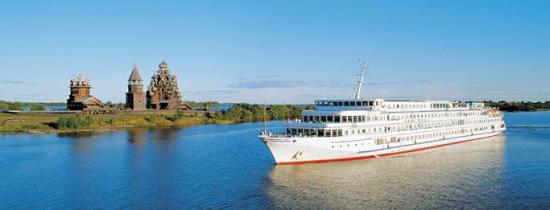Emba is a river in Kazakhstan. Description, features, photo
Emba is a river in Kazakhstan. It is one of the largest, along with such water flows as the Urals, Syr Darya, Ishim, Ili, Irtysh and Tobol. Emba captures at once two Kazakhstani regions: Aktobe and Atyrau, and it is its channel that divides the country into Asian and European parts.

a brief description of
Concerning the average length of the rivers of the planet,The length of the Emba is small: only 712 km. It begins in the western part of the southern spur of the Ural Mountains, then flows along the Podural Plateau and the Caspian Lowland, capturing areas with a saline seashore bog. Emba River (see photo in the article) refers to the basin of the Caspian Sea. It is into this water area that it falls.
It is peculiar to dry out in the summer season andSeparate into separated deep areas, in which fish predominantly are found in small quantities. The main discharge of Emba is observed in the spring. It is during this season that it is abundant. The food of the river is snow. Water contains a significant concentration of sodium chloride and is therefore highly mineralized. Emba is a river that has tributaries. The main ones are the Aksax and Temir, which also often dry out.
Resources
In different parts of Emba, the extraction of suchimportant natural resources like gas and oil. There are three separate areas: in the north, south and east. Initially, the North Emba and South Emba oil and gas parts were part of one, but already in the 1980s the latter was divided into two areas that remain unchanged to this day.

Territorial features
According to one of the versions, Emba is a river on whichyou can draw an invisible border separating Asia and Europe. However, according to the preliminary results of the campaign of the geographical community of Russia, it became clear that there is not enough ground for tracing the border between the two parts of the mainland. The reason for this is the fact that the mountains of the Urals to the south of the city of Zlatoust fall into several parts. Further, the ridge slowly grows into plains, namely, the landmark for the boundary is lost. The Emba River does not share Europe and Asia, because the territory it crosses is similar.
As a result, the expedition from Russia came to the nextconclusion: The Caspian plain appeared when the Caspian Sea washed the desert and the Ustyurt plateau with the same name from the west. Therefore, most likely, the border of the European and Asian parts should be considered precisely this region. As for natural areas, Emba is located on the territory of steppe and semi-desert.
Features of the river
The upper part of the Emba Current is a Cretaceous plateau,which is severely damaged by erosion. The lower one is located in the Caspian lowland and has a barely discernible slope to the marine area. Approximately 20 km from the mouth, Emba forms a delta, which has three main branches, bearing the names Kara-Uzyak, Kiyan and Kulok.
Due to frequent drying and very unstablea source of replenishment, there is a catastrophically shortage of water resources in the river. It is deep in spring, but in summer it turns into a lot of plots of immovable water. Emba - the river, which after the rain acquires a special color. Its waters become turbid with a dirty-milky shade.

Hydronym
In the Kazakh language, Emba has two optionstitles: Emby and Gem. The first is officially accepted. It comes from the Turkmen language. Gem is used, mainly, locally and is translated as "make-up". From the name of the river comes the name of the Nogai tribe, who used to live on Emba. However, they had to resettle because of pressure from the Kalmyks.
Animal world
Emba is a river, the animal world of which is enoughscarce. It is not difficult to guess that such poverty is due to the fact that the water flow almost all the year is a separate lake with standing water. Nevertheless, fishing on this river is possible in the spring season. It can catch pike, asp, chub, podust, carp, tench and some other fish.
</ p>>







